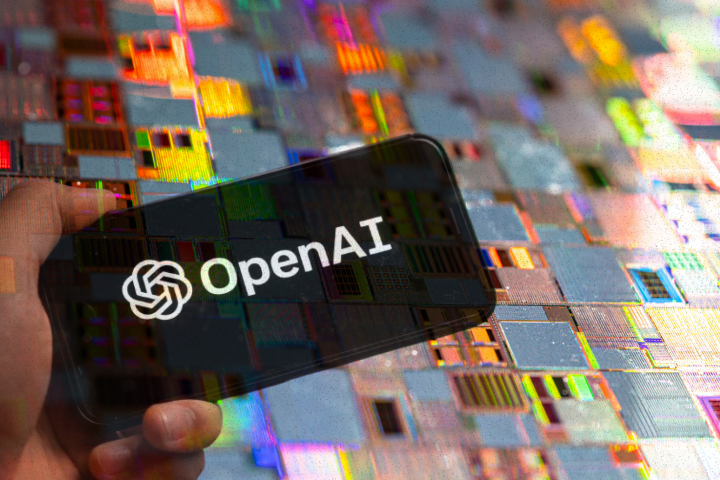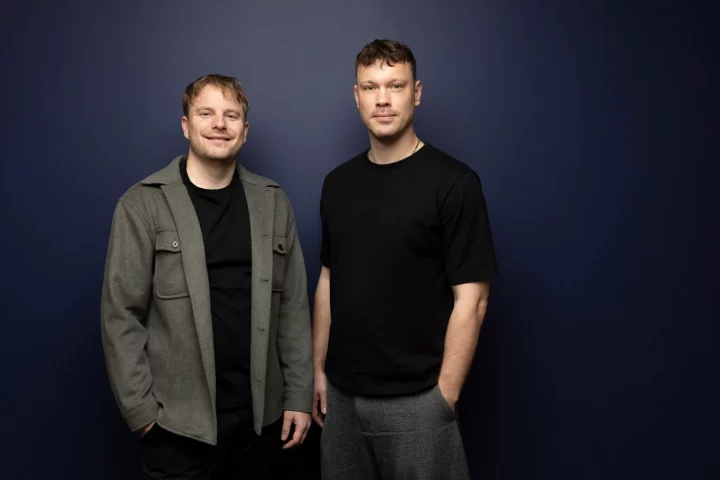The UK government has ordered Apple to build a backdoor into iCloud for British users, reviving a fierce encryption battle.
Microsoft reorganizes under new commercial CEO Judson Althoff, freeing Satya Nadella to focus on AI.
Nscale raises another $433 million just days after its record $1.1 billion Series B. And Samsung ditches titanium for aluminium on the Galaxy S26 Ultra, following Apple’s retreat.
Meanwhile, the UK launches 14 Regional Tech Booster projects to grow ecosystems outside London. Love Finance secures £45 million to become the go-to SME lender.
ZERØTEC tackles fashion’s $300 billion fabric waste crisis with AI. And Enceladus’ icy plumes reveal fresh evidence of life-friendly chemistry.
All that and more. Let’s dive in…
DRIVING THE CONVERSATION TODAY
UK orders Apple to create iCloud backdoor
The UK government has issued a fresh directive demanding Apple build a backdoor into iCloud for British users, according to the Financial Times. This revives a high-stakes clash over encryption, privacy, and national security.
Earlier this year, Apple withdrew its Advanced Data Protection (ADP), which offers full end-to-end encryption, for UK customers after an initial government demand (which also targeted U.S. users) was dropped following U.S. objections.
Apple reiterated it will never build a backdoor, warning UK users will be forced to disable ADP, leaving data less secure. The government declined to confirm the order but said it will take “all actions necessary” to protect citizens.
Microsoft reorganizes, names Althoff commercial CEO
Microsoft has appointed Chief Commercial Officer Judson Althoff as CEO of its new commercial business division, uniting sales, marketing, operations, and finance. The move frees CEO Satya Nadella to focus on AI, data centres, systems architecture, and product development.
Althoff, who joined Microsoft in 2013 and has led commercial since 2021, will head a new leadership team. The reorganization follows Microsoft’s merger of its developer and AI business marketplaces into a single Microsoft Marketplace, as the company races to maintain its AI edge.
Nscale raises $433M days after $1.1B Series B
UK AI infrastructure startup Nscale has secured an additional $433 million in a pre-Series C SAFE round, just days after closing Europe’s largest-ever AI infrastructure round at $1.1 billion.
Backed by Blue Owl, Dell, NVIDIA, and Nokia, Nscale is building sovereign, hyperscale AI compute across 50+ data centres in Europe, North America, and the Middle East.
Flagship projects include Stargate UK (31,000 GPUs) and Stargate Norway (100,000 GPUs by 2027). CEO Josh Payne says the fresh capital will accelerate Nscale’s mission to become the global backbone for AI in healthcare, finance, and robotics.
Samsung drops titanium for Galaxy S26 Ultra
Samsung will replace titanium with aluminium on its upcoming Galaxy S26 Ultra, reversing course after Apple abandoned titanium on the iPhone 17 Pro due to high costs and tariff pressures.
Aluminium offers better heat dissipation, lower cost, and improved margins—critical as wafer prices surge nearly 24 percent. The S26 Ultra will pair the new chassis with a vapour chamber to cool Qualcomm’s Snapdragon 8 Elite Gen 5 for Galaxy. Samsung also plans to revive its 2nm Exynos 2600 later this year to reduce Qualcomm reliance.
FUNDING FLASH
Love Finance secures £45M for SME lending
Birmingham-based fintech Love Finance has raised a £45 million debt package, £35 million from Paragon Bank and £10 million from LGB Capital Markets to accelerate direct SME lending.
Founded in 2016 by Jack Smith, the lender has grown without equity, hitting £9.2 million revenue in 2024 (up 900 percent in four years) and issuing £300 million in loans to 7,000 SMEs.
Businesses can now check eligibility in 5 minutes and receive funding in as little as 4 hours. With a five-star Trustpilot rating, Love Finance aims to become the UK’s most trusted small business lender.
ZERØTEC raises £642K to cut fashion’s fabric waste
London startup ZERØTEC has raised £642,000 in pre-seed funding to tackle fashion’s $300 billion fabric waste problem, 60 billion metres discarded yearly before garments even hit stores.
Led by Bethnal Green Ventures, with backing from SFC Capital, Cranfield University, and angel Benjamin Manwaring, ZERØTEC uses patented AI to optimise pattern design and cutting, saving brands up to 15 percent on materials.
Unlike downstream solutions, it embeds sustainability at the design stage. Already tested by 250+ brands, including Fortune 500 firms, it aims to partner with H&M and Nike and capture 500 million kg of carbon.
Phasecraft launches quantum software 1,000x faster
Bristol quantum firm Phasecraft has launched Mondrian, a hybrid quantum-classical platform it claims performs calculations 1,000 times faster than classical systems.
Developed with the National Energy System Operator and backed by a £1.2 million UK Quantum Catalyst Fund award, Mondrian targets optimisation in energy grids, logistics, and infrastructure.
The company, which raised £25.2 million in Series B last month (total funding over £40 million), will offer secure access to operators this month—positioning the UK at the forefront of commercial quantum computing.
STILL DEVELOPING
TSMC hikes wafer prices, ending era of cheap chips
TSMC is raising wafer prices dramatically: sub-5nm nodes up 5–10 percent in 2026, and 2nm wafers jumping over 50 percent, from $20,000 to $30,000+ each. Skyrocketing fab costs, geopolitical risks, and Gate-All-Around transistor complexity are driving the increases.
Qualcomm faces 16 percent hikes, MediaTek 24 percent, and Apple bears added tariff burdens. Consumers will see pricier flagships and AI accelerators, though chiplet designs help offset costs. TSMC calls the hikes “unavoidable” to maintain its 53 percent gross margin.
AMD bets on DGF for next-gen ray tracing
AMD revealed its UDNA GPUs will leverage Dense Geometry Format (DGF), a technology that breaks complex meshes into smaller blocks, updating only what’s needed per frame.
This reduces memory use, bandwidth waste, and speeds up ray tracing by simplifying bounding volume hierarchy rebuilds.
Future UDNA cards may include dedicated DGF hardware, freeing compute units and improving cache efficiency. While not revolutionary alone, DGF strengthens AMD’s push to compete in high-end animation and ray tracing workloads.
Cerebras raises $1B at $8.1B valuation ahead of IPO
Silicon Valley chipmaker Cerebras Systems has raised over $1 billion from Fidelity and Donald Trump Jr.’s 1789 Capital, valuing it at $8.1 billion as it prepares to challenge Nvidia in AI chips.
Its dinner-plate–sized processors power customers like Meta, AWS, and Mistral. Despite a $67 million loss on $136 million revenue in H1 2024, CEO Andrew Feldman argues Nvidia wins through financial clout, not technical merit. Nvidia, worth $4.4 trillion, insists its ecosystem “wins on merit.”
EQUALLY IMPORTANT
UK launches 14 Regional Tech Booster projects
The UK government has unveiled 14 new Regional Tech Booster initiatives, backed by £1 million, to grow tech ecosystems outside London. Projects span all nations and regions:
- Wales: AI venture-building challenges
- Scotland: Gaming startup acceleration via ScotlandIS and Game Space
- Northern Ireland: AI adoption for underrepresented founders
- East of England: Advanced connectivity support
- Lancashire: Pathways from further education to entrepreneurship
Regional investment events in Bristol and Leeds will connect founders with capital. The goal: ensure tech growth benefits every corner of the UK.
UK expands solar scheme to schools, NHS, military
The government and Great British Energy are extending their solar programme to 250 schools, 270 NHS sites, and 15 military bases, with £75 million in new funding (total now £255 million).
Solar panels and micro-wind turbines will cut energy bills, freeing up funds for care, education, and defence. Parallel measures include stronger rights for offshore renewable workers, mandated worker representation, and a Fair Work Charter. The government also confirmed it will end new onshore oil and gas licensing, including fracking.
All GP practices must offer online access 8am–6:30pm
From today, every GP practice in England must keep online appointment tools open 8am to 6:30pm, letting patients request consultations, ask questions, and describe symptoms digitally.
Early adopters saw waits drop from 14 days to 3, with 95 percent seen within a week. The reform is backed by £1.1 billion in extra funding, 2,000 new GPs, and 8.3 million more appointments yearly. Practices must also publish a “You and Your GP” charter and ensure continuity of care.
WORTH NOTING
UK launches AI initiatives in Africa at G20
At the G20 in Cape Town, the UK announced major AI partnerships under its “AI for Africa Initiative”:
- AI Evidence Alliance for Social Impact (AEASI): £2.75 million with Canada’s IDRC, Community Jameel, and Google.org to fund AI evaluations and local research leadership
- African Hub for AI Safety, Security and Peace: 12th global AI lab, based at University of Cape Town, focused on African-tailored governance and community engagement
The aim: ensure African voices shape global AI development and that investments align with local priorities.
Microsoft launches Microsoft 365 Premium
Microsoft has introduced Microsoft 365 Premium at $19.99/month, bundling Copilot Pro AI features with Word, Excel, PowerPoint, and cloud storage. It effectively merges the $20 Copilot Pro and Microsoft 365 Family tiers.
The plan offers higher AI usage limits and will soon include AI reasoning agents previously for corporate users only. Consumer Microsoft 365 now has 89 million users (up 8 percent), with revenue growing 20 percent year-over-year.
Meta ties AI assistant to ad targeting
Starting 16 December, Meta will use interactions with its Meta AI assistant, across Facebook, Instagram, WhatsApp, Messenger, and Ray-Ban smart glasses, to shape Reels recommendations and ads.
Users who engage with Meta AI (via text or voice) cannot opt out of this data use. Notifications begin 7 October, with UK and EU rollout following regulatory updates. With 1 billion monthly active users on Meta AI, the move tightly links generative AI to its core ad business.
Ubisoft launches Tencent-backed Vantage Studios
Ubisoft has unveiled Vantage Studios, a new subsidiary backed by a €1.16 billion ($1.36 billion) investment from Tencent (minority stake, advisory role). It will oversee Assassin’s Creed, Far Cry, and Rainbow Six.
Co-led by Christophe Derennes and Charlie Guillemot, Vantage spans studios in Montréal, Barcelona, Sofia, and more. Named by employee vote, it aims to give developers autonomy and faster feedback loops, part of Ubisoft’s recovery from recent setbacks and coinciding with key franchises joining Game Pass.
Enceladus plumes show fresh signs of habitability
New analysis of Saturn’s moon Enceladus reveals complex organic molecules in its south-pole ice plumes, ejected directly from a 30-mile-deep subsurface ocean. Cassini data shows these samples were only minutes old, ruling out space weathering and confirming life’s chemical building blocks survive the journey to space.
While not proof of life, the findings confirm Enceladus hosts a chemically rich, habitable environment, making it a top candidate for future missions.












